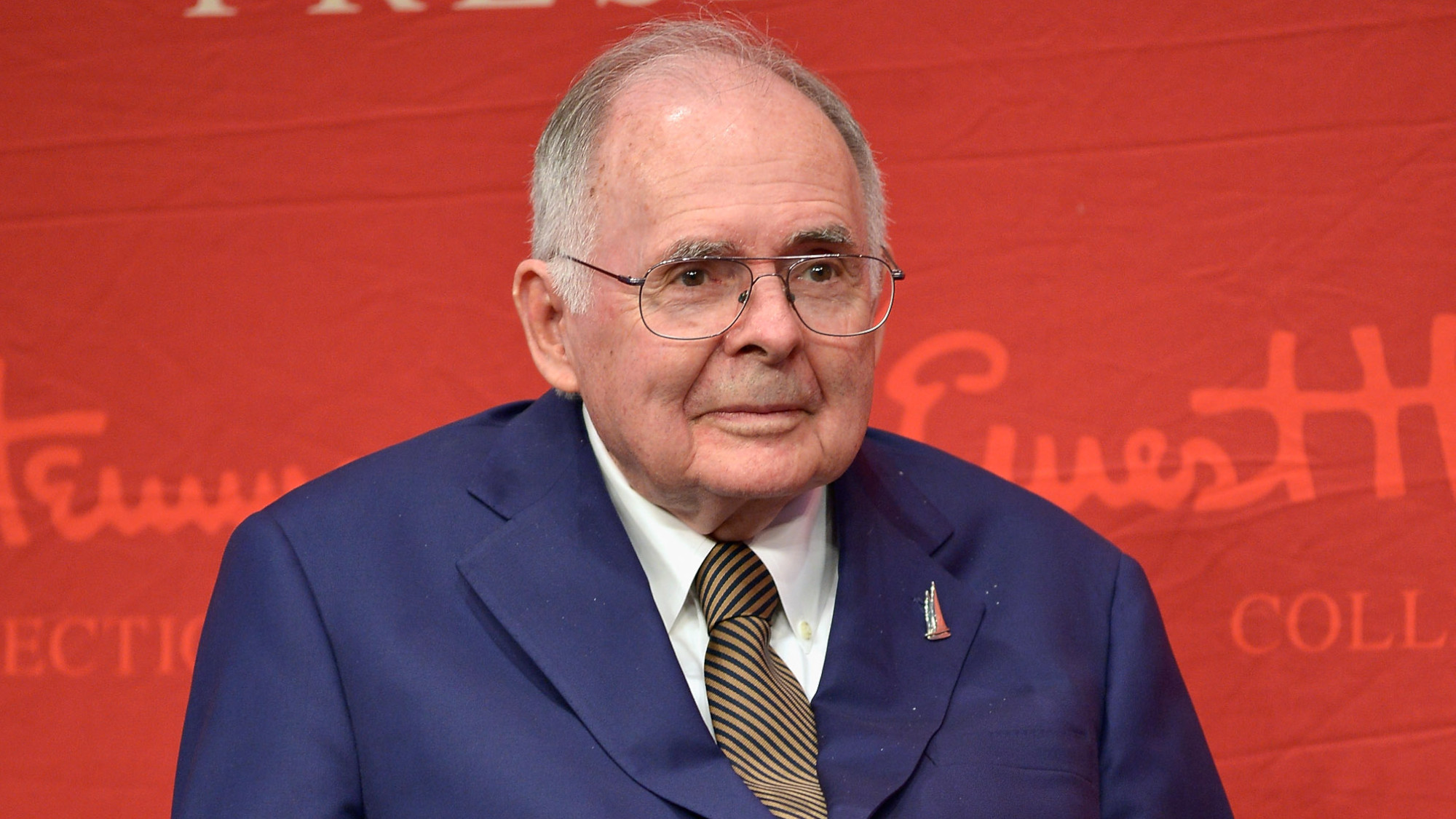Russell Means, 1939–2012
The rabble-rouser who fought for American Indians
A free daily email with the biggest news stories of the day – and the best features from TheWeek.com
You are now subscribed
Your newsletter sign-up was successful
Russell Means became the late-20th century’s most famous American Indian at Wounded Knee, where the U.S. Cavalry had massacred more than 150 Lakota Sioux men, women, and children in 1890. To protest past and current injustices, in 1973 Means and some 200 other activists of the American Indian Movement occupied the historical site, on South Dakota’s impoverished Pine Ridge Reservation, leading to a tense 71-day standoff with heavily armed federal forces. Two activists died and a U.S. marshal was left paralyzed in the confrontation, and the following year Means’s highly publicized trial ended when a federal judge dismissed felony charges on grounds of prosecutorial misconduct. Though conditions for Indians didn’t improve, Means considered the occupation a historic success. “Wounded Knee restored our dignity and pride as a people,” he later said.
Born on the Pine Ridge Reservation, “Means was, by his own account, a magnet for trouble,” said The New York Times. He grew up around San Francisco and “drifted into delinquency, drugs, alcoholism, and street fights.” After years of wandering the West, he moved to Cleveland in 1969 to head a center serving the city’s Indian residents. There he met Dennis Banks, who had recently co-founded the American Indian Movement, and he soon became its national director.
With AIM, Means later wrote, he found his purpose: “to get in the white man’s face until he gave me and my people our just due,” said the Los Angeles Times. In 1970 alone, Means “infamously urinated on the top of the head of George Washington” at Mount Rushmore and helped seize control of a replica of the Mayflower in Massachusetts. In later years, Means was imprisoned on obstruction of justice charges; he was stabbed once and shot three times. But he went on to embody American Indian characters in more than 30 films, including The Last of the Mohicans and Natural Born Killers. Acting was just another way, he later said, for him to be a voice for “freedom-seeking Indian people.”
The Week
Escape your echo chamber. Get the facts behind the news, plus analysis from multiple perspectives.

Sign up for The Week's Free Newsletters
From our morning news briefing to a weekly Good News Newsletter, get the best of The Week delivered directly to your inbox.
From our morning news briefing to a weekly Good News Newsletter, get the best of The Week delivered directly to your inbox.
A free daily email with the biggest news stories of the day – and the best features from TheWeek.com
-
 The ‘ravenous’ demand for Cornish minerals
The ‘ravenous’ demand for Cornish mineralsUnder the Radar Growing need for critical minerals to power tech has intensified ‘appetite’ for lithium, which could be a ‘huge boon’ for local economy
-
 Why are election experts taking Trump’s midterm threats seriously?
Why are election experts taking Trump’s midterm threats seriously?IN THE SPOTLIGHT As the president muses about polling place deployments and a centralized electoral system aimed at one-party control, lawmakers are taking this administration at its word
-
 ‘Restaurateurs have become millionaires’
‘Restaurateurs have become millionaires’Instant Opinion Opinion, comment and editorials of the day
-
 Catherine O'Hara: The madcap actress who sparkled on ‘SCTV’ and ‘Schitt’s Creek’
Catherine O'Hara: The madcap actress who sparkled on ‘SCTV’ and ‘Schitt’s Creek’Feature O'Hara cracked up audiences for more than 50 years
-
 Bob Weir: The Grateful Dead guitarist who kept the hippie flame
Bob Weir: The Grateful Dead guitarist who kept the hippie flameFeature The fan favorite died at 78
-
 Brigitte Bardot: the bombshell who embodied the new France
Brigitte Bardot: the bombshell who embodied the new FranceFeature The actress retired from cinema at 39, and later become known for animal rights activism and anti-Muslim bigotry
-
 Frank Gehry: the architect who made buildings flow like water
Frank Gehry: the architect who made buildings flow like waterFeature The revered building master died at the age of 96
-
 R&B singer D’Angelo
R&B singer D’AngeloFeature A reclusive visionary who transformed the genre
-
 Kiss guitarist Ace Frehley
Kiss guitarist Ace FrehleyFeature The rocker who shot fireworks from his guitar
-
 Robert Redford: the Hollywood icon who founded the Sundance Film Festival
Robert Redford: the Hollywood icon who founded the Sundance Film FestivalFeature Redford’s most lasting influence may have been as the man who ‘invigorated American independent cinema’ through Sundance
-
 Patrick Hemingway: The Hemingway son who tended to his father’s legacy
Patrick Hemingway: The Hemingway son who tended to his father’s legacyFeature He was comfortable in the shadow of his famous father, Ernest Hemingway